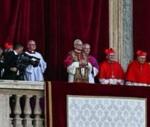You are here
Ten years of action-oriented agenda within the UfM
Oct 07,2018 - Last updated at Oct 07,2018
By Federica Mogherini, Ayman Safadi and Nasser Kamel
Ten years ago, the leaders of the coastal states of the Mediterranean and the European Union met in Paris to take the next step in regional cooperation, building on the Barcelona Process that was launched over a decade earlier. This saw the birth of the Union for the Mediterranean.
Ten years on, there is an even greater need for Mediterranean cooperation. Our region is going through a long and difficult transition. Competition among global and regional power-houses, and the absence of effective mechanisms for dialogue and cooperation, can only worsen today's conflicts and risk sparking new ones. A more cooperative dynamic is the only way to put an end to the on-going wars, and create jobs and sustainable growth for our peoples.
This region, rich in history, culture and diversity, has been the cradle of vibrant civilisations and cultures that gave birth to the alphabet, democracy, philosophy as well as the world’s first great libraries and academies. With its wealth of natural and human resources, the economic weight of the region cannot be understated. In recent years, however, this region has had to face major challenges that undermine the realisation of its tremendous potential.
Today, we are convening the Ministers of Foreign Affairs of the Union for the Mediterranean (UfM) in Barcelona for the Third Regional Forum. The UfM is a unique space for dialogue, and the only one where all countries of the region are able to focus on their shared interest in sustainable security and human development, through practical cooperation on common projects.
Our region's unique diversity is part of our richness: an opportunity more than a challenge. Beyond ethnic, cultural and religious divides, there is much more that unites us than divides us. We all want to counter the threat of terrorism and extremism. We all want to find political solutions to crises, In Syria, Yemen, Libya and elsewhere in the region in the Middle East that have caused too much suffering and too many lives. We are determined to solve the Palestinian-Israeli conflict on the basis of the two-sate solution as the only path to comprehensive peace and security. And we all want to manage migration in a more sustainable and humane way, both for those on the move and for their host communities. We share an interest in investing in our young people, with education and good jobs for all.
National policies alone are not sufficient. A coordinated regional approach is essential.
Our primary objective is to put the people of the region at the centre of our cooperation. We are working together to match the aspirations of young people with the opportunities that they deserve. Extremism, poverty and conflict not only ruin lives today, but also have dire consequences for generations to come. We will not find all the solutions, but we must be bold in exploring new ways of tackling these common challenges, together.
It is in this complex context that the UfM has been working and engaging substantially in a wide range of sectors. We have created Euro-Mediterranean Universities to educate a new generation of young people with a unique Euro-Mediterranean vision. We have given opportunities and training to over 100,000 young people, and supported the development of over 800 small and medium enterprises. Ministers have met to work in areas as varied as mobility, women empowerment, climate action, renewable energies, environmental protection, resource management, regional connectivity and urban development. The structure and the system of governance of the UfM, with its co-presidency currently held by Jordan and the EU, has created a sense of shared responsibility among the different partners. The commitment and dedication of the UfM Secretariat to the cause and the mission of the organisation has been crucial. With its action-oriented approach, the UfM has been delivering on concrete initiatives with a tangible impact on the ground.
Leveraging its diversity of experiences, capitalising on the continuous political support from member states and pooling its human capital, we are confident that the UfM will proceed pragmatically with its positive agenda. We are realistic about the difficult state of our region, but this is no reason to give up and accept chaos. Now more than ever, on the conduct of each depends the fate of all.
Federica Mogherini is the European Union's high representative for foreign affairs and security policy and
vice president of the European Commission. Ayman Safadi is the minister of foreign affairs and expatriates, Hashemite Kingdom of Jordan. Nasser Kamel is the secretary general of the Union for the Mediterranean












